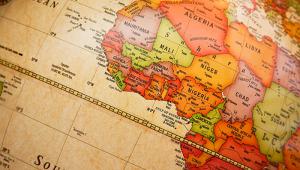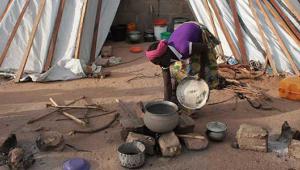The measures were adopted over a three-day conference organised by the African Development Bank (AfDB) and government of Senegal, which ended in Dakar, Senegal on Friday. The event, titled Feeding Africa, drew some 500 participants and promised to yield one of the boldest initiatives ever taken on Africa’s development.
Commenting on the plans as the conference closed, Akinwumi Adesina, president of the AfDB, said: “These are bold decisions. And nothing less than bold decisions are needed to transform Africa’s agriculture sector and unlock its huge potential.
“We must leave here strongly committed to accelerate implementation of actions on these areas. We must act and act with a sense of urgency.”
In order to speed up investments in the infrastructure needed to improve Africa’s agricultural competitiveness, a number of institutions including the AfDB, World Bank and United Nations Economic Commission for Africa will work with other development partners to create agro-allied industrial zones and agricultural corridors.
Adesina emphasised the need to invest in “quality infrastructure” to attract investors into rural areas. The Democratic Republic of Congo (DRC), Rwanda and Senegal have since announced such initiatives.
Senegalese President Macky Sall announced tax breaks and special status for private companies willing to invest in projects improving agriculture in rural areas.
DRC president Augustin Matata Ponyo Mapon said his government would invest in the construction of feeder roads to meet demand for an industrialised agriculture sector and spend $40m in an industrial park aiming to improve the production of cereals for export.
Using sovereign wealth funds and pension funds, the AfDB will support the long-term financing needs of the agricultural sector especially for critical infrastructure development. The bank will develop Agribusiness Diaspora Bonds to securitise remittance flows for investments in the industry and accelerate financing to the sector through private equity funds.
The AfDB will also work with partners to leverage $3bn in financing for women in agriculture and triple its climate financing to $5bn annually by 2020 by working closely with the African Union, UN Environmental Programme and the G7, among others. An Africa Youth in Agriculture Financing Facility will be established to support young commercial farmers and youths in agriculture.
Central banks in Africa will set aside special funds to allow farmers to access credit at reduced interest rates, as well as to long-term agricultural loans with longer-term maturity.
Strategic partnerships with US President Barack Obama’s Feed the Future Initiative, the World Food Programme, the Bill and Melinda Gates Foundation and a number of other organisations will foster innovative approaches to malnutrition and hunger.
About two thirds of Africa’s employment is in the agriculture sector and the continent has around two thirds of the world’s arable land, yet it imports $35bn of food annually and a quarter of its population suffers from hunger or malnutrition.
Adesina said: “This conference has created the synergy needed for effective partnerships to enable us to attain our objectives of feeding Africa. We can do it, we will do it. We will feed Africa and the world.”













